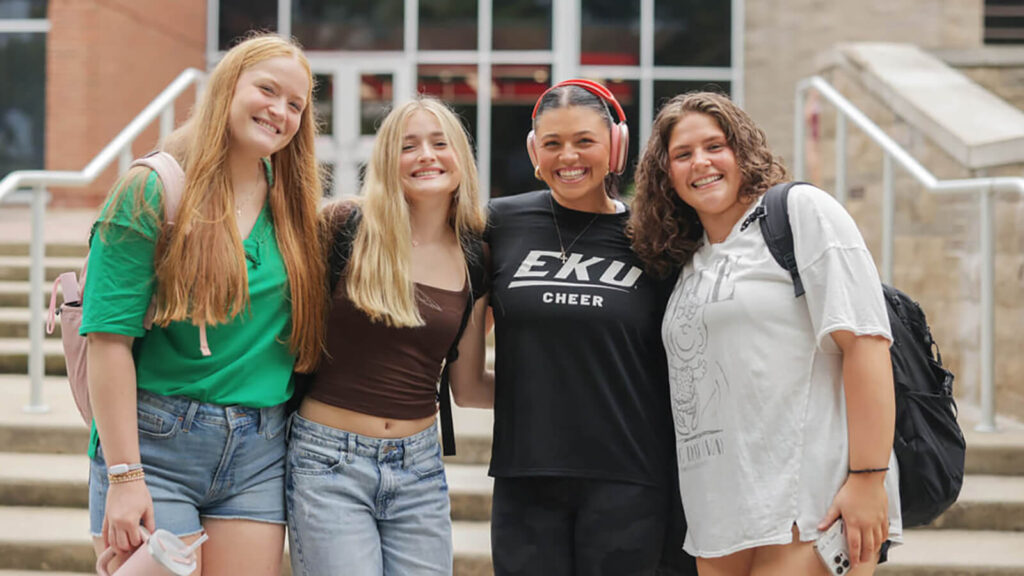
Department of History, Philosophy & Religious Studies
College of Letters, Arts & Social Sciences
Department of History, Philosophy & Religious Studies
College of Letters, Arts & Social Sciences
Enhance Your Perspective and Expand Your Horizons
EKU’s Department of History, Philosophy, and Religious Studies is home to four programs: History, Philosophy and Religious Studies, Asian Studies, and African and African American Studies. It offers undergraduate degrees, graduate degrees, and certificates that can be tailored to meet your personal and professional goals. Because of their interdisciplinary nature and diverse humanistic outlook, courses offered by this department enhance perspectives and expand horizons. Regardless of which program you choose, you will be challenged to read critically, write clearly, think broadly, and question deeply.
Learn More
Department of History, Philosophy & Religious Studies Degrees & Certificates
Undergraduate Programs

Why Study History, Philosophy, and Religious Studies?
History, philosophy, and religious studies are essential to understanding the human experience. The diversity of these subjects helps us appreciate different cultures, ideas, beliefs, values, and events across time and space. Studying these subjects can help develop critical thinking skills, communication skills, and empathy skills that are necessary in the modern workforce.
Student Stories & Features
Quick Links
Upcoming Events
News & Updates
El Centro Celebrates National Hispanic Heritage Month
EKU Names 2024 Society of Foundation Professors
Contact Information
Department of History, Philosophy & Religious Studies
521 Lancaster Ave.
Keith 323
Richmond, KY 40475
859-622-1287
mark.conard@eku.edu


